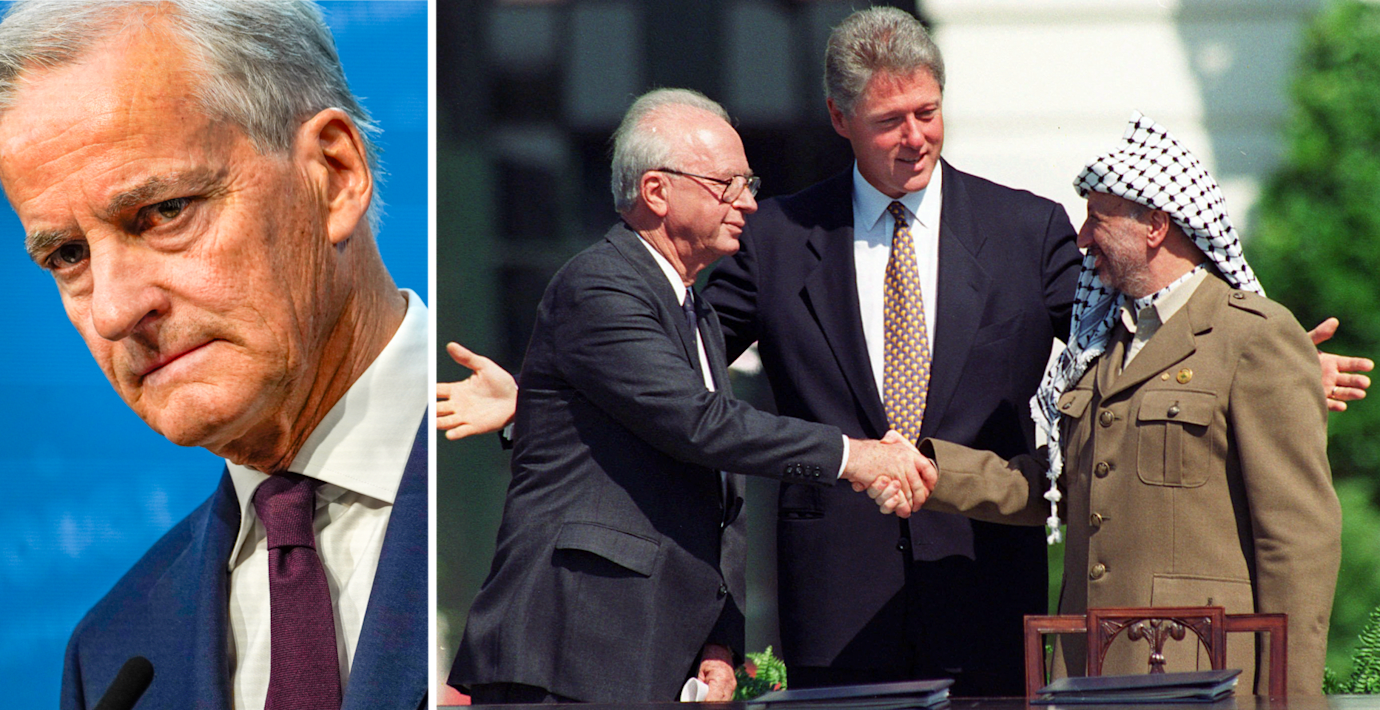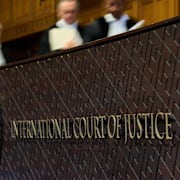
Analys: Fredsmäklarna såg inte detta framför sig
Norges och Spaniens erkännande av Palestina som stat kommer ungefär 30 år efter Osloavtalet. De norska fredsmäklarna såg knappast detta framför sig, när de arbetade fram den fredslösning som innebar en stat för varje folk, skriver Sigurd Falkenberg Mikkelsen i NRK. När erkännandet nu kommer är det utan en stat som fungerar i praktiken, utan hopp för tvåstatslösningen och utan fred i sikte.
Falkenberg Mikkelsen skriver att Norge nu ändrar taktik. I stället för att se det som en process som ägs av israeler och palestinier själva vill man utöva påtryckning utifrån.
Nathan Shachar skriver i DN att hårda ord från israeliska ledare efter det norska erkännandet döljer en stigande israelisk maktlöshet. Jerusalems ställning är försvagad på grund av situationen i Gaza, den försämrade relationen med USA och att ICC:s chefsåklagare begärt att få en internationell arresteringsorder utfärdad för bland andra Benjamin Netanyahu.
En tidigare version av texten kunde läsas som att ICC beslutat att utfärda en arresteringsorder mot Netanyahu. Så är inte fallet.



